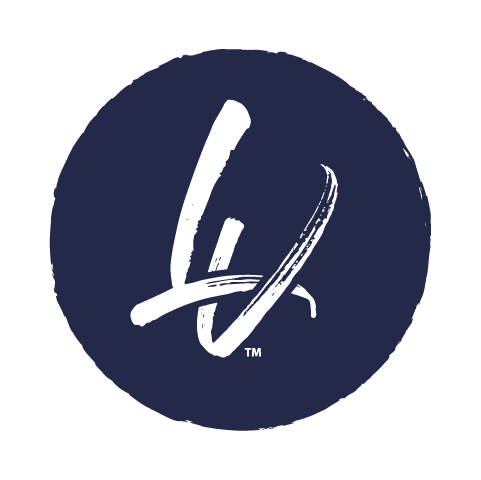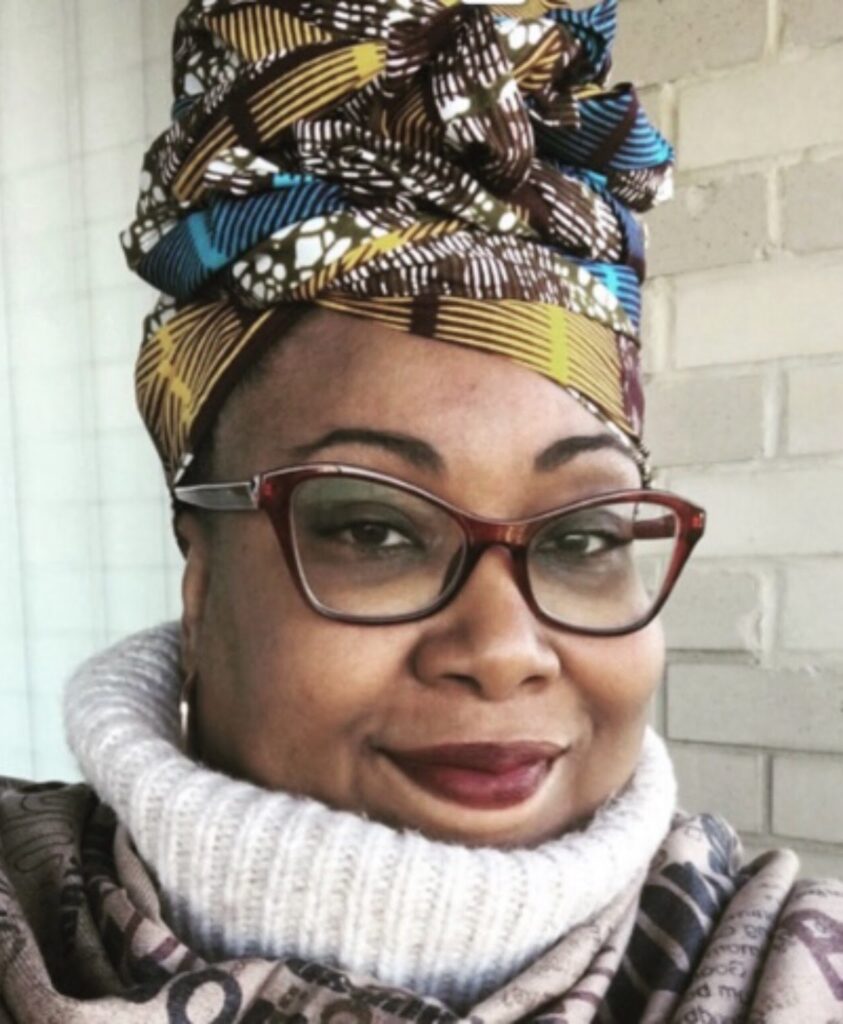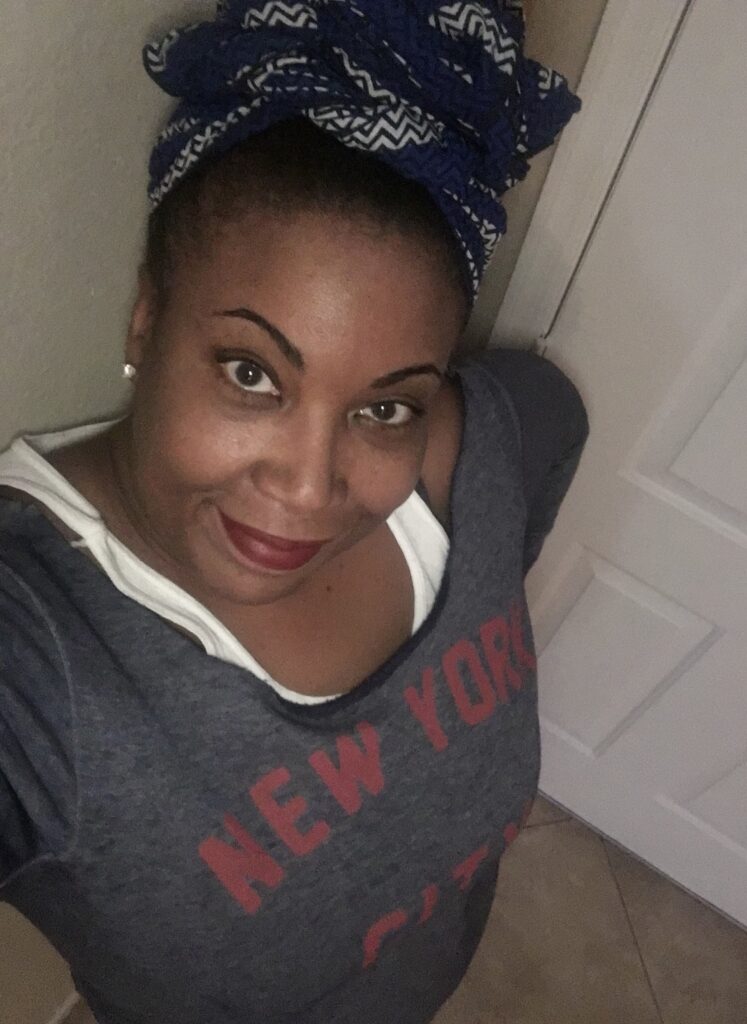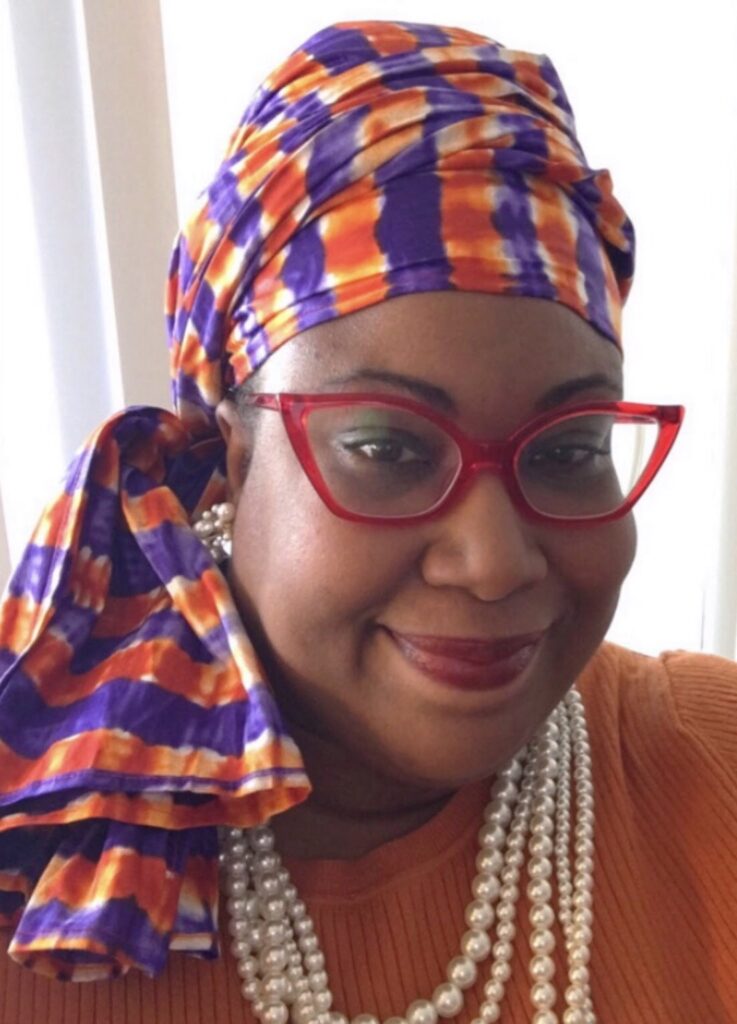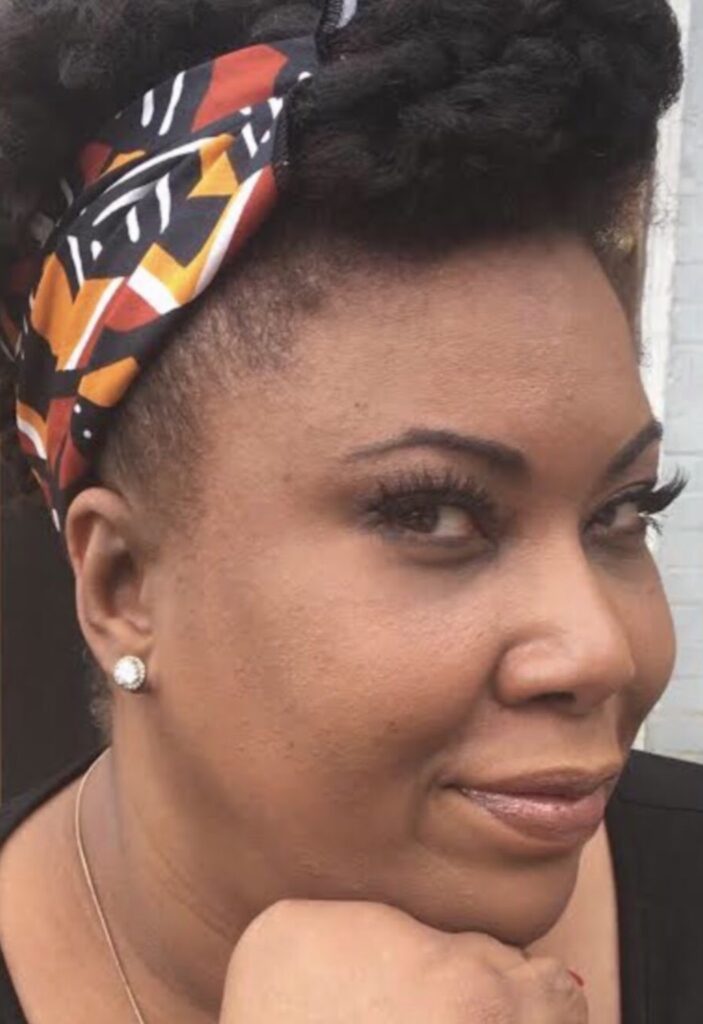Monifa Caines is an entrepreneur and Veteran of the US Air Force. Her story of entrepreneurship is as personal as it is compelling. It is a journey of healing and discovery that started with a mind and heart dedicated to service.
Caines earned a nursing degree at Howard University before commissioning as an officer in the Air Force, where she served eight and a half years. Her nursing work in the Air Force involved caring for high profile patients at Andrews Air Force Base in Maryland, followed by a tour at Aviano Air Base, Italy during the early days of Operation Enduring Freedom. She was later assigned to Nellis Air Force Base in Nevada after cross training to Personnel.
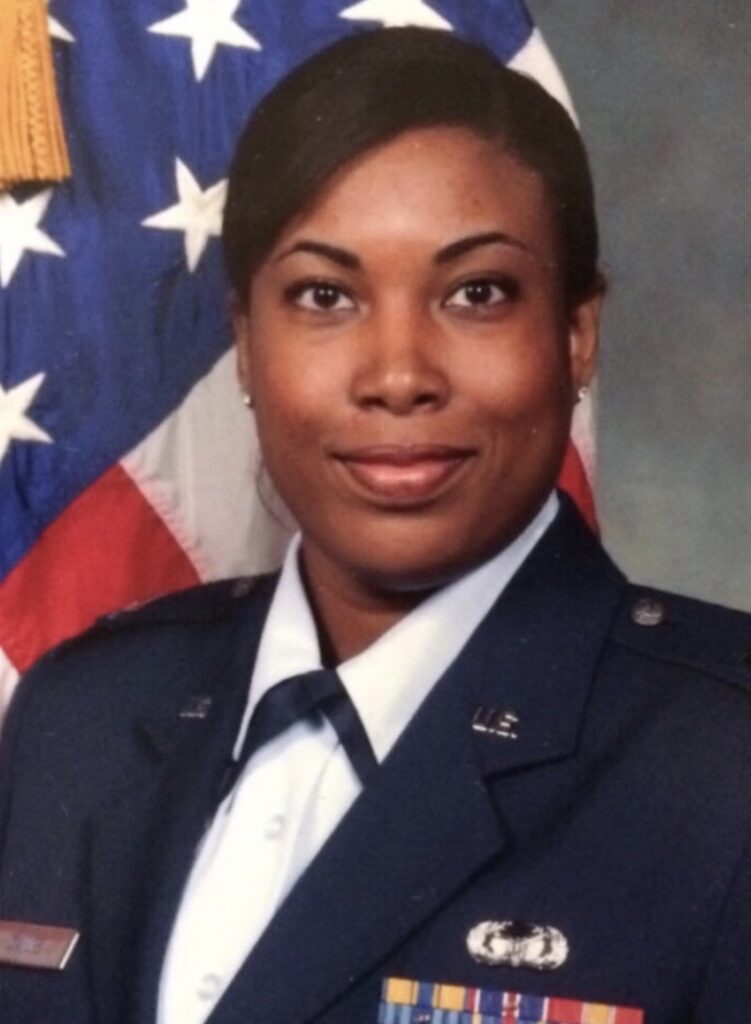

FROM MILITARY RULES TO CORPORATE RULES
After eight and a half years in the Air Force, Caines was thankful for the experience but ready to move on. The transition proved to be more challenging than she expected. “Transition wasn’t as easy as I thought because there’s so many unwritten rules working in corporate America.”
But first she had to get a foot in the door. “When I first started sending out my resume, I wasn’t getting any calls.” When people from TAP briefings would ask for Veteran resumes specifically, she would send hers to all the right places. Still no callbacks. At one point when a friend found out she was using her first name, she told Caines to stop. By simply replacing Monifa on her resume with her more European-sounding middle name, the calls started pouring in.
Caines worked a variety of jobs in the corporate world; some lasting as long as four years. She didn’t know it yet, but a foundation was being laid for more rewarding things to come.
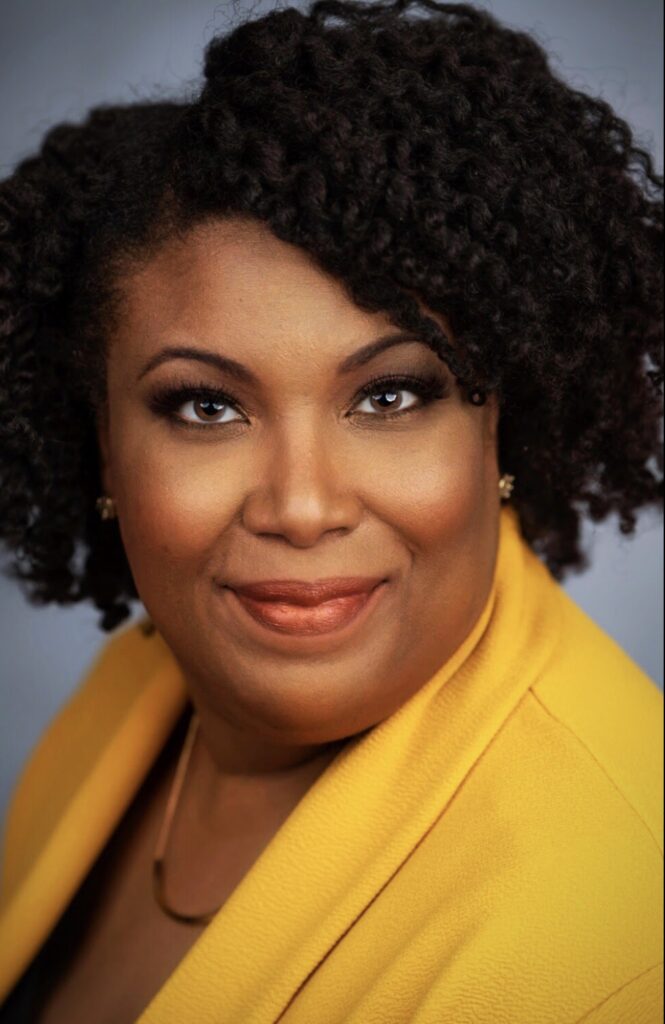

THE COST OF CONFORMITY
“When I was working in corporate America—well, in the military, too—I would have to put this chemical relaxer in my hair so that it would go straight. I’ve been doing it since I was 12. That’s just what we did because we had to learn early to conform.”
“This chemical is so dangerous. It has lye in it. If you want to decompose a carcass, you use lye. It also has battery acid. So every four to six weeks, I would put this in my hair. A lot of times I would get chemical burns on my head. I just did not have the healthiest hair. But I showed up to work with it slicked back in a ponytail.”
“In the military it had to be like that—that was the regulation. You couldn’t have your natural hair. I could never wear the natural hair that grows out of my head—that was not in regs.”
One day, after sustaining yet another chemical burn from hair relaxer, she found herself at a turning point. “Why am I doing this to myself? Why do I keep hurting myself? I’m tired of it. I’m not putting this stuff in my hair anymore.”
It sparked a long personal journey to relearn her own hair—something she hadn’t seen since the age of 12. After years of chemicals, it would take time for her healthy hair to return. She transitioned to braids, and eventually to her natural hair, which she slicked back in a bun for work. “I hated it. My hair looked great, but I just hated that I had to do that every day, because that’s how you were supposed to be seen in the company—with slicked back hair.”
NOW YOU LOOK “PROFESSIONAL”
One day a manager walked by and noticed she had taken her braids out. “He said, good. Now you look professional.”
His comment was a sharp reminder that the corporate world did not accept her for who she was. More importantly, it revealed that the hair she was born with was inextricably linked to her job performance. The statement clearly implied that unless she wore her hair chemically relaxed or slicked into submission, she would not be a good candidate for growth opportunities or promotion. She would not look professional enough to represent the company, or to be seen as a leader, period. “Historically, it is not seen as professional. It is not seen as beautiful. So that is why we were told to conform.”
Eventually she took a role at another company, and the same thing happened. “They say ‘bring your authentic selves’ but they really don’t want you. They want your diversity, but they also want you to assimilate. Bring your blackness, but make sure your hair is straight. We have diversity, but we don’t want you too diverse. We don’t want you to be you.”
FILLING A NEED
It didn’t take long for Caines to notice a gap in the market for women with natural hair. “I couldn’t really find things for my texture of hair. And that’s not on any company. That’s just because we were so used to conforming, they would only make accessories and other things for your hair straight. When your hair was not straight, there was nothing. So I ended up making my own things. Buying things, breaking them, making them, painting them. I also started making head wraps.”
After getting tons of complements and questions on her head wraps and hair accessories, she started making pieces for friends. Eventually she realized, “I have so many ideas. I can wake up and do this every day!” She loved being able to make something with her hands and help other women struggling with their own hair. So she poured her creativity and desire to help into starting her own company, Queen of Spades Style. “It came from my passion, but also personal experience of not finding things out there for different textures of hair.”
EMBRACING YOUR AUTHENTIC SELF
For most women, hair is a big part of personal identity and Queen of Spades Style embraces women for exactly who they are. Caines likes to remind her clients that “your authentic self starts from the top.”
At the heart of Monifa Caines’ entrepreneurship lies the culmination of all her experiences. From nursing and military service to the corporate world, and as a person who has struggled at times in all these environments to be seen and accepted for her genuine self—all of it informs her work and fuels her passion to help others on their own journey.
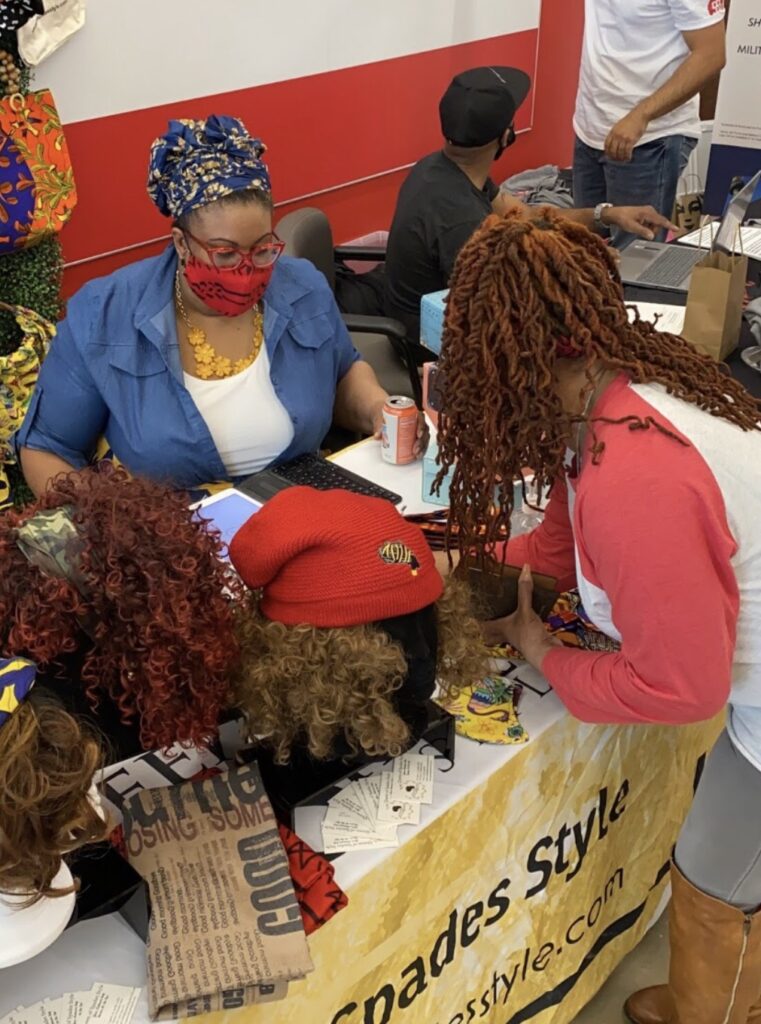

ADVICE FOR OTHER VETERAN ENTREPRENEURS
For any Veteran struggling to transition into a post-military career, Caines recommends tapping into the wealth of knowledge to be found in other fellow Veterans. “Go on Facebook groups. Look on LinkedIn. There are so many Veterans that can give you a hand, tell you the real deal, tell you where to get certain things. If you want to get into their line of work, ask those questions and maybe they can point you in the right direction.”
Monifa Caines is Founder and CEO of Queen of Spades Style, a woman-owned, minority-owned small business. She served eight and a half years in the US Air Force, separating honorably as a Captain in 2006. To learn more, please visit Queen of Spades Style online, or follow on Instagram and Facebook.
